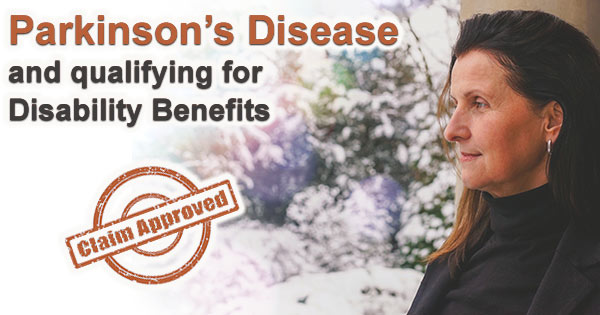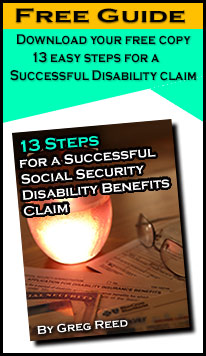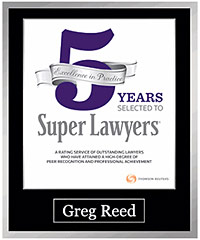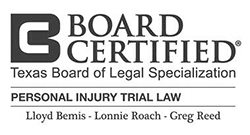Parkinson’s Disease and Qualifying for Disability Benefits
Can I get disability benefits if I am suffering from the effects of Parkinson’s disease?
Author: Attorney Greg Reed
Updated: 4/11/2024
Arthur’s hand trembled as he gripped the pen and stared at the form. Parkinson’s disease had slowly taken away his steady hands and ruined his carpentry career. He had been in denial for years and had to face the fact that just holding a hammer could be dangerous. Today, Arthur felt a flicker of hope as he considered the application for disability. He was adapting to the circumstances; filing for disability benefits would enable him to focus on what was important – his health – and feel more secure about his financial future.

If you are suffering from the effects of Parkinson’s disease and have been denied disability don’t give up, almost 70% are denied initially! Just call 512-454-4000 for a free, no obligation consultation to learn what your options are.
Arthur’s situation is not unusual.
Approximately 500,000 Americans are diagnosed with Parkinson’s disease, the second most common neurodegenerative disorder in the United States. Parkinson’s disease (or PD) is part of a collective group of neurological disorders known as Parkinsonian syndrome and characterized by tremors, stiffness, slow movement and postural instability. It primarily affects people 60 years of age or older, but younger people can develop PD, especially when the brain is damaged by infection or drugs.
Can I qualify for Social Security Disability if I have Parkinson’s disease?
Parkinson’s disease can cause muscle stiffness, coordination problems, difficulty standing and walking and affect a person’s speech, making it hard to maintain full-time employment, but in order to be eligible for disability, you must first satisfy Social Security’s financial and medical requirements.
- Financial Requirements:
- Medical Requirements:
Before you are eligible for Social Security disability benefits, you must:
1) have a disability that has lasted or is expected to last 12 months; and 2) you must have worked in a job where you paid Social Security taxes long enough and recently enough; and 3) you must not earn more than Substantial Gainful Activity (SGA), which is $1,550 per month in 2024 for nonblind applicants and $2,590 per month for blind applicants. If you earn more than the SGA amount, your claim will be denied, and if you have not worked enough recently to earn the necessary amount of work credits, Social Security will deny your claim. (link to work credits page)
Social Security recognizes Parkinsonian syndrome in its Blue Book under Section 11.06.
The Blue Book is a manual where Social Security lists disorders it considers disabling and may automatically qualify for Social Security Disability. Social Security evaluates Parkinson’s disease based on the functional limitations it causes instead of a diagnosis of the disease. To be eligible for disability benefits, you must meet the requirements of the listing or demonstrate that your PD is so disabling you are unable to hold a full-time job.
In order to qualify under Section 11.06, your medical records must document one of the following for at least three months:
- You are unable to control motion in both arms or both legs (or one arm and one leg), in spite of following treatment for at least three months, AND
- You have extreme difficulty:
- Balancing while standing or walking;
- Standing upright from a seated position; or
- Using your arms.
OR
- You have severe physical problems along with marked limitation in one of the following:
- Completing tasks; i.e. difficulty concentrating, persisting, speed
- Understanding, remembering, applying information; following instructions
- Interacting with others
In addition to a diagnosis of Parkinson’s disease, Social Security will want to see complete medical records including:
- Examination reports;
- Laboratory tests results;
- Medications you take and side effects;
- Imaging tests such as x-rays, CT scans and MRIs;
- Any other treatments you are taking and your responses to those treatments;
- Doctors’ opinions and statements detailing your limitations and how they affect your ability to work.
Discuss your condition with your medical providers and make sure they describe your limitations and symptoms in their notes in detail.
Social Security will compare your doctor’s notes with what you say in your application. You will need to demonstrate that you are following your doctor’s treatment plan, and despite that your medical condition still prevents you from working full-time.
It’s also very important to keep track of your work absences.
Once Social Security determines your limitations caused by your condition, they will have a vocational expert assess whether a person with those same limitations is employable
If you don’t meet the criteria as set out in the Blue Book listing, you may still qualify for a medical-vocational allowance if Social Security determines that there is no other work you can do because of your limitations.
Social Security will conduct a Residual Functional Capacity assessment (RFC) to evaluate how your disability affects your ability to perform your old job or if there is any other job you are able to perform, taking into account whether or not you are able to drive, your age, and level of education. For example, many people with Parkinson’s disease are unable to work due to fatigue, confusion, memory loss, tremors and stress intolerance. If Social Security decides you cannot do your old job or don’t have the skills to perform a new job, you may be approved for a Medical-Vocational Allowance.
If you are 55 or older or have another medical condition you may get approval.
Social Security follows a set of rules to determine when the agency expects an applicant to learn a new job.
Applicants who are 55 or older often fall under a grid rule, which means they are not expected to learn a new job. For example, a 55-year-old applicant with no transferable skills might be found disabled. If you can’t go back to your old job, and you don’t have the skills to learn a new one, Social Security will likely grant you disability benefits.
Disability for those over 55 –>
If you are suffering from Parkinson’s disease and have been denied disability don’t give up, almost 70% are denied initially! Just call 512-454-4000 for a free, no obligation consultation to learn what your options are. Have some questions? just give us a call, we love to help folks just like you!
You may also be eligible for Social Security Disability benefits if you have another medical condition, such as depression, anxiety and sleep disorders.
One disorder alone may not meet the criteria of an impairment as stated in Social Security’s Blue Book, but if you have more than one medical condition, Social Security must consider how those health issues combined limit your ability to hold a job and perform necessary daily tasks.
Disability for Multiple Impairments –>
Should you file a claim?
If you believe that you meet Social Security’s medical and financial requirements, you should apply for benefits.
If you are still unsure or would like to talk to someone, please contact us at 512-454-400. We are always ready to take your call and discuss your options with you free of charge. We are happy to help folks just like you find the best solution for their personal situation.
How do I file for Social Security Disability benefits?
Once you have decided to file a claim, you can apply for Social Security Disability benefits in person at your local Social Security Administration office, online, or over the phone.
After your application is submitted, Social Security will send your file to the state’s Disability Determination Services office (DDS). A claims examiner will request and review your medical records and may call you for an interview or additional paperwork. When the claims examiner has enough information, Social Security will make a decision and notify you by mail. This normally takes three to four months, but could take longer. Don’t be discouraged if your initial application is denied – most are – and you will have the opportunity to appeal.
There are four steps to the Social Security appeal process:
- File a Request for Reconsideration with the Social Security Administration to completely review the case.
- If you don’t agree with SSA’s response to your Request for Reconsideration, you can request a hearing before an Administrative Law Judge (ALJ). ALJs are attorneys who work for the Social Security Administration; they review SSDI cases and either uphold or overturn decisions to deny SSDI benefits. If you are not represented by an attorney at this point, now is the time to obtain legal counsel. This is a critical point in the process and will raise your chance for success.
- If an ALJ does not grant your claim, you can request that the Appeals Council review your case.
- Federal Court review. The final step in the appeal process is filing suit in U.S. District Court.
Do I need a disability attorney for SSDI?
If you have Parkinson’s disease and cannot work, you may be eligible for Social Security Disability benefits, but qualifying is a complex process and may be very challenging for a person with PD.
You may certainly file a claim on your own, but evidence shows that your chances for approval are increased significantly if you have legal representation. At each stage of the process, from the initial application to the reconsideration stage and the ALJ hearing stage, an attorney can assist you in completing the detailed forms and questionnaires required by Social Security, collecting and submitting relevant medical evidence, and preparing questionnaires for your doctors. At the ALJ hearing phase an attorney will not only continue to assure that the evidence is complete, but prepare you for questioning by the ALJ, prepare an argument on your behalf and question any doctors or vocational experts selected by the ALJ to testify at the hearing. At the Appeals Council and federal court level, a lawyer can present legal arguments to show your case was wrongfully denied. Fees charged by disability attorneys are regulated by federal law and are usually 25% of disability backpay you are owed. There are no out-of-pocket costs, and if you don’t win your case, you won’t be charged anything.
What if I don’t qualify for SSDI?
If you haven’t worked long enough to earn enough work credits, or if you earn too much income, you may be eligible for disability benefits through another Social Security program, such as Supplemental Security Income (SSI), or from a long-term disability insurance plan through your employer or a privately purchased policy.
SSI is a program that pays monthly benefits to people with limited income and resources who are disabled, blind, or age 65 or older. SSI is based on income instead of work credits, and is financed by general funds of the U.S. Treasury. You can check eligibility requirements and begin the application for SSI online or by calling Social Security at 1-800-772-1213. https://www.ssa.gov/ssi/text-apply-ussi.htm. In addition to SSDI and SSI benefits, you may be able to get financial assistance from a privately purchased long-term disability policy or a policy through your employer.
I have long-term disability insurance – should I file a claim?
Yes – you should file a claim as soon as you become disabled.
Long-term disability insurance (LTD) protects your income if you are unable to work due to illness or injury and is purchased as part of a group employment plan or privately through an insurance company. Policies pay between 50-60% of your salary and benefits continue until you return to work or for the number of years stated in the policy. However, do not quit your job before you file a claim because LTD coverage is good only as long as you are employed, and be sure to check your policy’s definition of “disabled” as each policy will state the definition of “disabled” which is in use. Also, be aware that long-term disability insurance companies can require a claimant to also apply for SSDI.
LTD Disability Appeals Process–>
Do I need a disability attorney for a long-term disability insurance claim?
It doesn’t matter whether you have a long-term disability insurance policy purchased through a private insurance broker or a group policy purchased with your employer; filing a claim for long-term insurance is a complex process.
The wording of LTD policies from companies such as Aetna, Cigna, Unum, Hartford and the Standard can be confusing and the laws and regulations which affect the two types of LTD insurance differ in procedures for filing claims and appeals. An experienced LTD attorney with thorough knowledge of ERISA laws and regulations will avoid mistakes and increase your chance of success. An attorney will act on your behalf, completing your application and filing your claim in a timely manner. They can also negotiate a settlement or file an appeal for you. If it becomes necessary to file suit, an LTD attorney can prepare your case against an insurer. Most LTD attorneys handle cases on a contingency basis and charge approximately 25%-40% of a claimant’s past due benefits. You do not pay an attorney’s fee unless the attorney wins your case.
Do I need an LTD attorney–>
At The Texas Disability law firm Bemis Roach & Reed, our attorneys are committed to helping injured or disabled clients receive the benefits they deserve. Mr. Roach is AV Preeminent and SuperLawyers rated and has become a recognized leader in the field of Long Term Disability law. Mr Bemis focuses his practice on Social Security disability while Mr Reed handles both LTD and SSDI claims. Both are AV Preeminent and SuperLawyers rated and all our attorneys have been successfully helping people fight for their rights against big insurance companies and the government since 1993. If you have applied for benefits and been denied call 512-454-4000 for a free consultation and get help NOW.
Neurocognitive Disorder and obtaining Social Security disability benefits
Can Essential Tremor qualify for Disability Benefits?
Cognitive Dysfunction Disability Assistance
Author: Attorney Greg Reed has been practicing law for 29 years. He is Superlawyers rated by Thomson Reuters and is Top AV Preeminent® and Client Champion Gold rated by Martindale Hubbell. Through his extensive litigation Mr. Reed obtained board certification from the Texas Board of Legal Specialization. Greg is admitted to practice in the United States District Court - all Texas Districts and the United States Court of Appeals-Fifth Circuit. Mr. Reed is a member of the Travis County Bar Association, Texas Trial Lawyers Association, past Director of the Capital Area Trial Lawyers Association, and an Associate member of the American Board of Trial Advocates. Mr. Reed and all the members of Bemis, Roach & Reed have been active participants in the Travis County Lawyer referral service.
Your Free Initial Consultation
At Bemis, Roach and Reed, if we can't help you, we will try to find the right attorneys for you.
We offer each of our prospective clients a free no obligation one hour phone or office consultation to see if we can help you and if you are comfortable with us. We know how difficult a time like this can be and how hard the decisions are. If we can be of assistance to you and help you find a solution to your issue we will even if that means referring you to another attorney.
Or simply call
512-454-4000
to schedule your
Free Consultation
Let's get you Started:
If you could provide us with some basic information about your claim we will get right back with you with a free case evaluation and schedule your Free Consultation Today.










